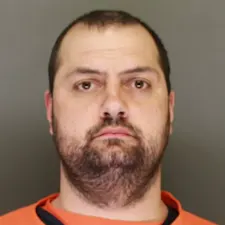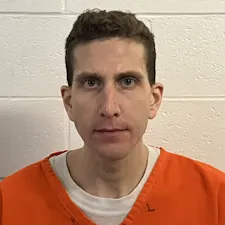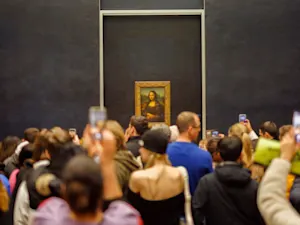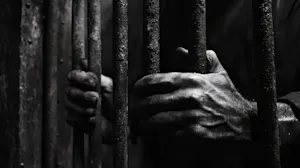
London Unites in Face of Terror
Sign reads: "AVOID LONDON | AREA CLOSED | TURN ON RADIO." Taken on July 7, 2005. Photo by Demi under CC BY-SA 3.0.
Twenty years ago, London faced a day that would forever change its history and the lives of thousands. On the morning of July 7, 2005, during rush hour, four coordinated suicide bombings struck the city's transit system, targeting Tube trains at Aldgate, Edgware Road, and Russell Square stations, as well as a double-decker bus in Tavistock Square. The attacks killed 52 people and injured hundreds more, shaking the city to its core and sparking a nationwide response that still resonates today. As London marked the 20th anniversary of this tragedy on July 7, 2025, the story of that day remains one of both horror and remarkable resilience, unity, and hope.
The Day Terror Struck London's Transit Network
The morning of July 7, 2005, began like any other for Londoners heading to work or school. But at 8:50 a.m., the city's routine was shattered by four explosions across its transit system. Three bombs detonated almost simultaneously on underground trains near Aldgate, Edgware Road, and Russell Square stations. Nearly an hour later, a fourth bomb exploded on a bus in Tavistock Square.
These attacks were the deadliest terrorist act on British soil, reportedly killing 52 people and injuring more than 770. The victims came from diverse backgrounds, reflecting London's multicultural fabric. Among those injured was Paralympic athlete Martine Wiltshire, who lost both legs in the Aldgate explosion and later recounted the harrowing experience.
Who Were the Bombers?
The four suicide bombers were British-born men radicalized by extremist Islamist ideology. Mohammad Sidique Khan, Shehzad Tanweer, Hasib Hussain, and Germaine Lindsay carried out the attacks, each detonating explosives they had prepared using readily available materials like hydrogen peroxide and piperine, a compound from black peppercorns.
Despite their British upbringing, these men had become deeply influenced by extremist groups. Investigations revealed that Khan and Tanweer had traveled to Pakistan in 2004 to train with al-Qaida, where they were militarized and convinced to carry out attacks on British soil. The bombers' backgrounds challenged assumptions about terrorism, showing how homegrown individuals could be driven to commit such atrocities.
The Immediate Aftermath and Investigation
The attacks plunged London into chaos, with emergency services responding swiftly to aid survivors and secure the city. Police launched an extensive investigation, reviewing thousands of hours of surveillance footage to identify the bombers. A breakthrough came when footage showed four men carrying large backpacks together at a station, leading investigators to trace them back to Luton, north of London, where their car was found containing homemade explosives.
The investigation also uncovered a failed follow-up attack on July 21, 2005, when four more bombs were planted but failed to detonate. The suspects in this second wave were arrested and later convicted, receiving minimum 40-year prison sentences for conspiracy to commit murder.
The Tragic Mistake: The Death of Jean Charles de Menezes
In the tense days following the July 7 attacks, a tragic error occurred. Police mistakenly identified Jean Charles de Menezes, a Brazilian electrician, as one of the suspects involved in the failed July 21 bombings. He was fatally shot by officers on a London Underground train, despite carrying no explosives. This incident sparked outrage and grief across the UK and highlighted the challenges and dangers of counterterrorism efforts.
According to TIME, the officer who fired the fatal shots later took full responsibility, clarifying that de Menezes had passed through the station normally and that police had jumped the barriers after him. The Metropolitan Police Service was found guilty of breaching health and safety laws and fined, but no individual officers were prosecuted.
Remembering the Victims and Honoring Resilience
On July 7, 2025, Londoners gathered to commemorate the 20th anniversary of the bombings. The ceremony at St. Paul's Cathedral brought together survivors, emergency workers, bereaved families, and dignitaries. Wreaths were laid at the 7 July memorial in Hyde Park at the exact time the first bomb exploded, a solemn tribute to those lost.
According to The Guardian, speakers at the service reflected on the transformation of the areas affected by the attacks. They highlighted the diverse communities that define London and the city's enduring spirit of tolerance and respect. Survivors like Thelma Stober, who lost a leg in the Russell Square blast, exemplify the personal resilience that emerged from the tragedy. Their stories remind us that even in the darkest moments, hope and strength can prevail.
Forgiveness and Healing
The journey toward healing has been complex and deeply personal for many affected by the bombings. The cousin of Jean Charles de Menezes has publicly spoken about forgiveness, emphasizing the importance of moving forward despite the pain caused by his tragic death. This perspective was shared in interviews and public statements reflecting on the impact of the shooting and the broader consequences of the attacks, underscoring a message of reconciliation and hope.
A City United Against Terror
The 7/7 bombings were a stark reminder of the threats posed by radical extremism, but they also revealed the strength of a city united. The coordinated attacks aimed to sow fear and division, yet Londoners responded with solidarity and resilience. The commemorations in 2025 serve not only to remember the victims but also to celebrate the enduring spirit of a city that refuses to be broken by terror.
As you reflect on London's day of shock and strength, consider the courage of those who survived, the dedication of first responders, and the ongoing commitment to understanding and preventing extremism. The story of July 7, 2005, is a powerful testament to human resilience and the unyielding hope that can arise from tragedy.
Liza Williams, director of the Netflix docuseries "Attack on London: Hunting the 7/7 Bombers," which features interviews with survivors, investigators, and officials involved in the case, has said the series aims to show how important it is "not to let events divide us," according to PEOPLE.
London's experience reminds us all that even in the face of unimaginable horror, communities can come together to heal, remember, and build a safer future.
References: What Happened in the 7/7 London Bombings? A Look Back at the Aftermath | The True Story Behind 'Attack on London' | 7/7 London terror attack victims remembered at 20th anniversary service | 7 July London attacks | 'I was there when the bombs went off' – Thelma Stober | 'I have to forgive': 20 years after Jean Charles de Menezes was shot by police in Stockwell his cousin looks back
























